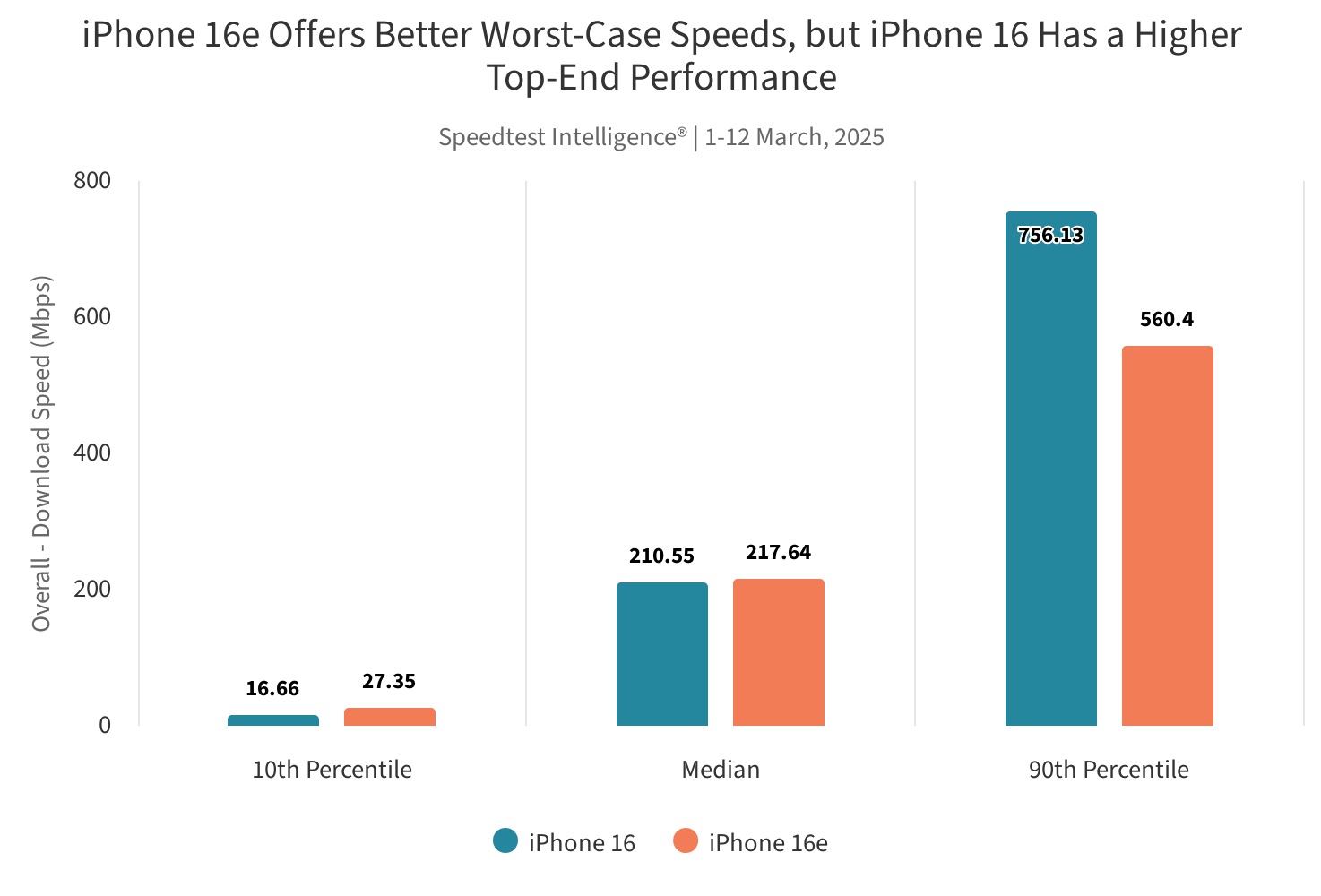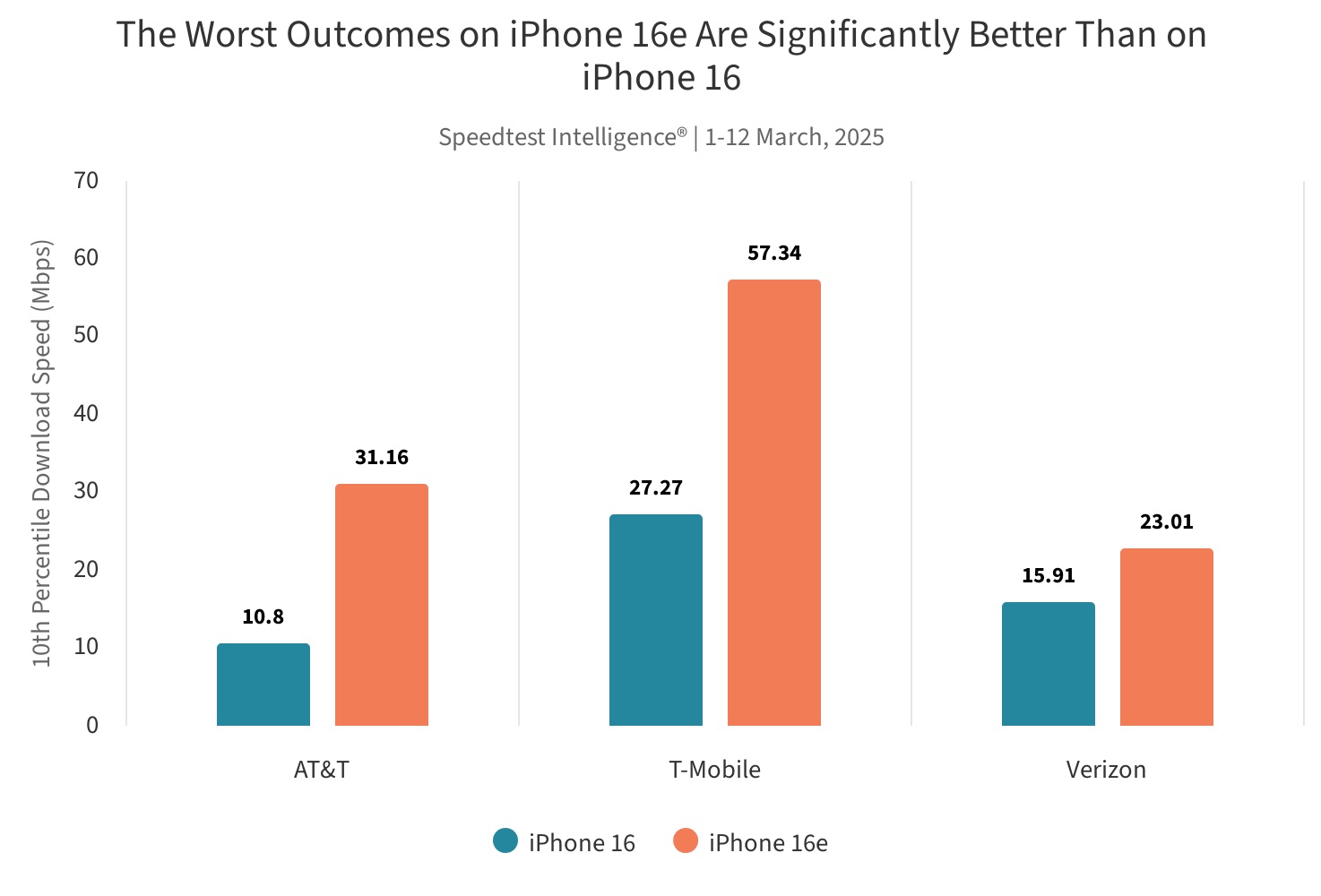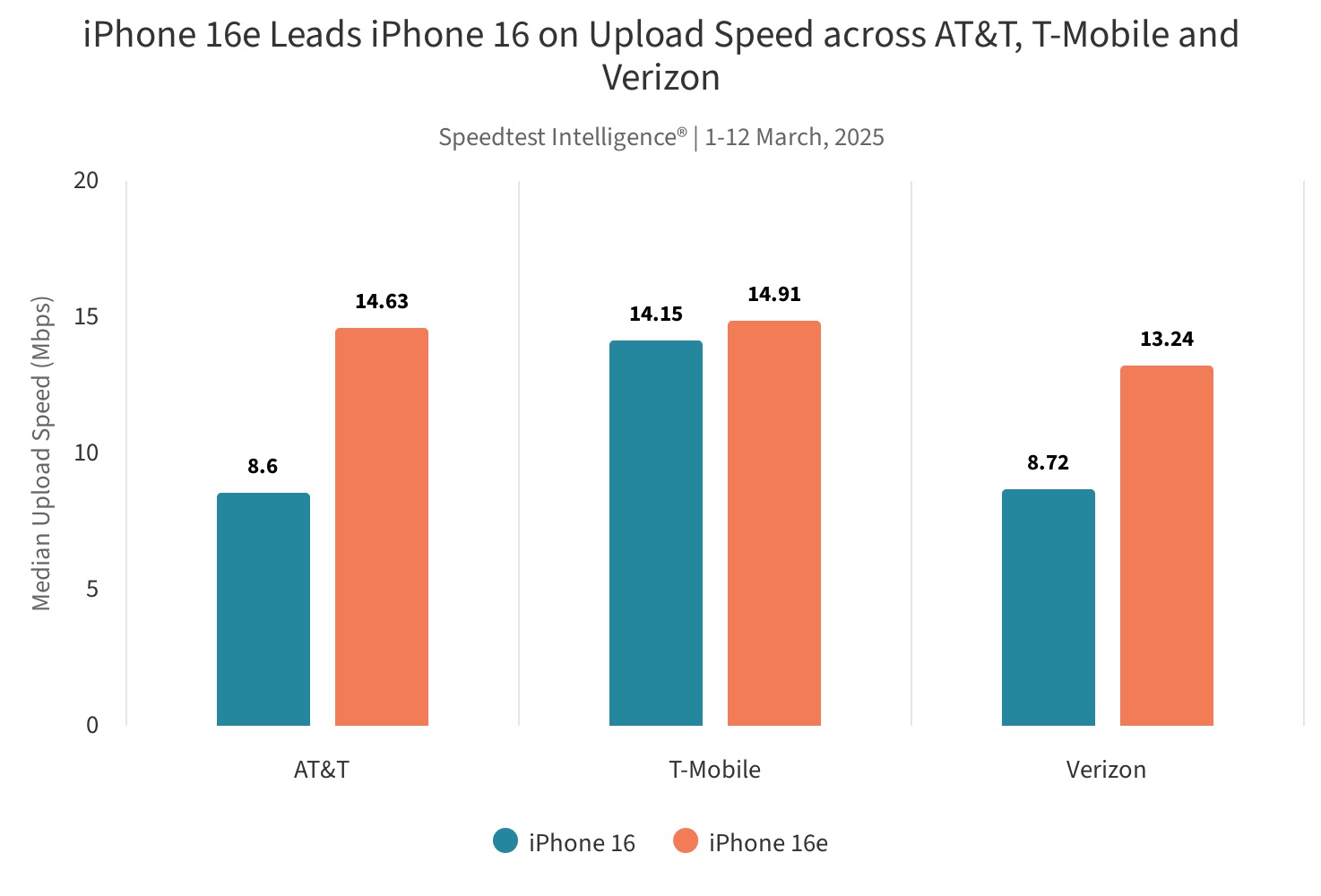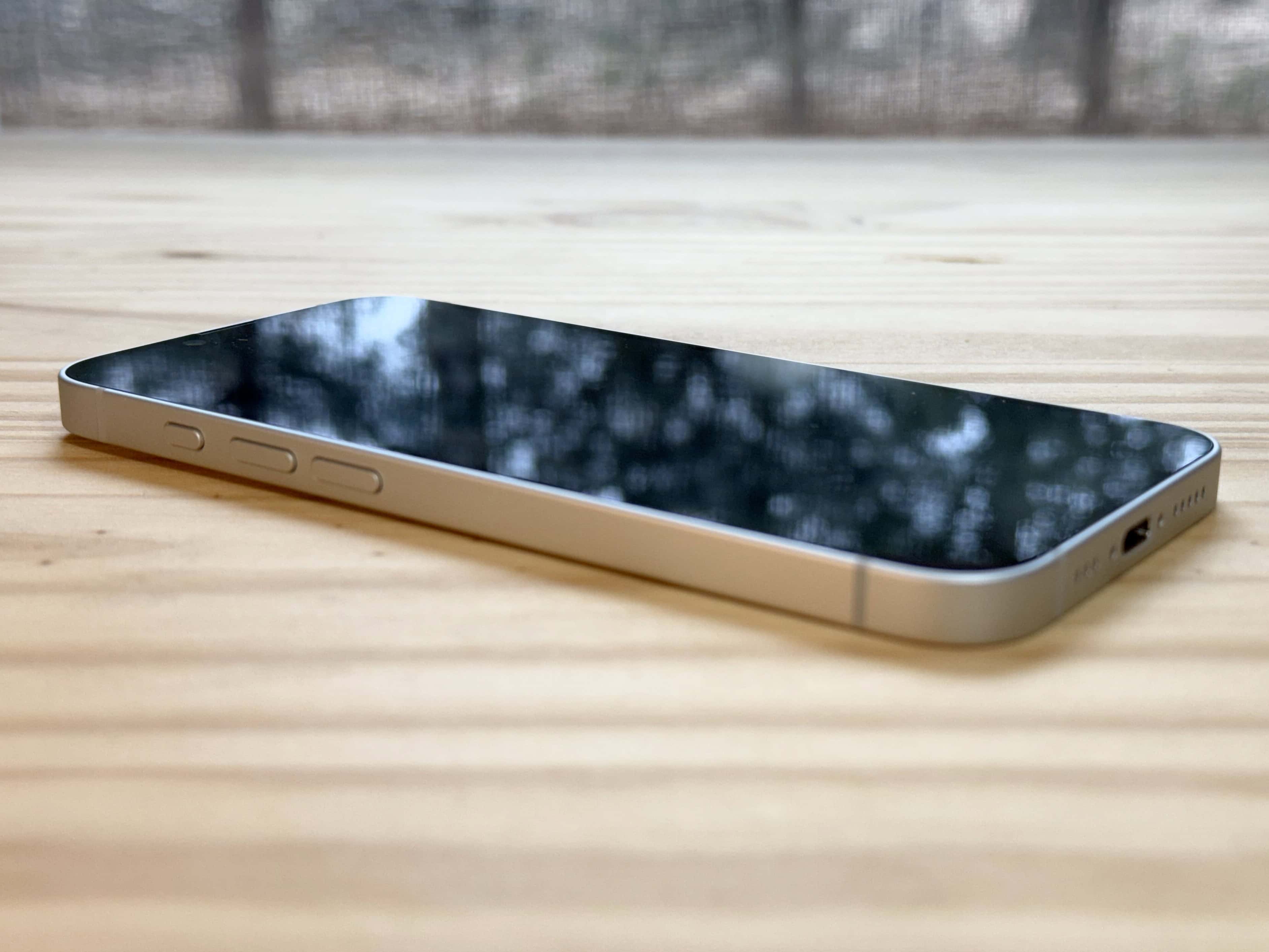The iPhone 16e marks the debut of Apple’s in-house 5G modem. Despite missing mmWave 5G support, the modem still impresses. Apple touts it as the most efficient modem ever in an iPhone.
Ookla, the company behind Speedtest, has released a detailed analysis of the iPhone 16e’s network performance based on their preliminary data.
iPhone 16e’s C1 modem impresses with its performance
Apple uses Qualcomm’s latest and greatest 5G modem on its iPhones to deliver the best mobile network performance. Its in-house C1 modem is not as good as Qualcomm’s offering, especially missing out on faster mmWave 5G support. So, what impact does it have on mobile data speeds? Based on Ookla Speedtest’s data, quite a bit.
In its report, Ookla compared the Speedtest data between the iPhone 16 and iPhone 16e from March 1st through March 12th across three major US operators. As expected, the iPhone 16 delivers higher download speeds for the top 90th percentile of users, thanks to its mmWave support. iPhone 16 owners averaged speeds of about 756Mbps, while the iPhone 16e topped out at 560Mbps.

Photo: Ookla
But surprisingly, the iPhone 16e outperforms its pricier sibling for the bottom 10th percentile of users across all carriers. Its average mobile data speed reached approximately 217.64Mbps, outperforming the iPhone 16’s 210.55Mbps. Interestingly, the newest member of the iPhone 16 family achieved faster median download speeds on AT&T and Verizon’s network.
For some reason, though, it achieved significantly slower speeds on T-Mobile — up to 24% slower than the iPhone 16.

Photo: Ookla
Ookla blames the iPhone 16e’s slower download speeds on the T-Mobile network to its advanced 5G standalone network. It says the inferior performance could be because “T-Mobile is the only US carrier to have a nationwide commercialized 5G standalone network (SA) and one of the few operators globally to deploy significant spectrum depth and advanced features like carrier aggregation (CA) on the new 5G architecture.”
Apple’s C1 modem is not advanced enough to take advantage of this, leading to slower mobile data speeds.
Surprisingly, the iPhone 16e also achieved higher upload speeds than the iPhone 16 across all three major US carriers.

Photo: Ookla
Given that the C1 is Apple’s first in-house 5G modem, its performance is undeniably impressive. This signals that the company is heading in the right direction with its modem development.
Rumors indicate Apple’s second-gen C2 modem will arrive with the iPhone 18 Pro lineup in 2026. It should be considerably more powerful and feature-rich, possibly even eclipsing Qualcomm’s flagship modem at that time.


